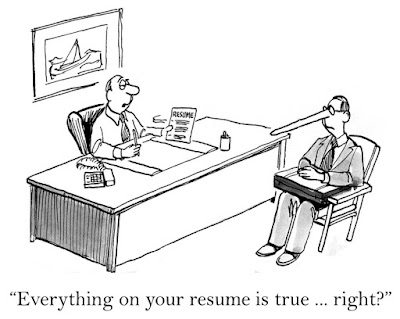Even if every fact on a resume is true, most of what you learn about a candidate cannot be learned from what’s printed in black and white. You need to find a way to interview the candidate in person…to get up close and personal.
There are so many ways to sabotage your own hiring process and end up with an employee who is far less than what you hoped for. Doesn’t everyone who engages in the interviewing game want to find the top talent, that “A” player, who will enhance the team with just the right attitude, skills and fit? And yet how often are we disappointed?
Here are some of the reasons we make the wrong new hire choices.
1. We don’t know how to get to the candidate’s real story.
You need a proven, fair, balanced behavior-based interview process. Each interviewer should have attended a behavior based interviewing skills training that teaches how to dig beneath the surface. Sure, a candidate may be able to legitimately claim that they were part of a successful sales initiative that increased revenue by 250%. But you need to understand exactly how they were involved. Did they lead the project or were they just in charge of filing orders?
2. We are pressured to hire someone as soon as possible.
This one is very common and, admittedly, it is hard to be really discriminating when a key stakeholder is breathing down your neck to find a replacement for the critical team member who just left. Our advice? Don’t ever settle. Be patient and hang in there until you find just the right person. Otherwise you will be stuck with a mediocre hire that will drag the team down for a long time to come.
3. We rely too much on referrals and too little on our own judgment.
Employee referrals are great. They eliminate the time it takes to identify a person we want to investigate as a potential hire and typically result in people who are apt to be a higher cultural fit. But that should be as far as it goes. Don’t shorten the interview process because of an enthusiastic recommendation. Recognize the bias and follow the same procedure you would with any other candidate.
4. We focus more on skills than on attitude.
Sure, you need to begin the conversation about relevant skills, competencies and experience. After all, you want to ensure that the necessary capabilities for the desired job performance are all there. But what really matters in the end is the candidate’s attitude and cultural fit with the team and the organization. Skills can for the most part be taught. Attitudes and values, however, rarely change significantly. Be sure you hire for a candidate’s work ethic, values, change agility, motivation, enthusiasm and willingness to learn.
After twenty years of work helping clients hire successfully, we know that the best new hires are those based on the talent you need that fits in your unique corporate culture and that supports your business strategy. That’s where effective behavior-based interviewing should lead you.
Learn more at: http://www.lsaglobal.com/behavior-based-interviewing-training/


No comments:
Post a Comment